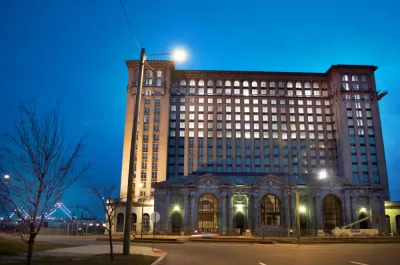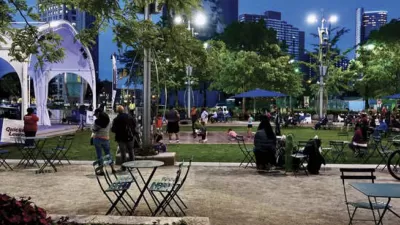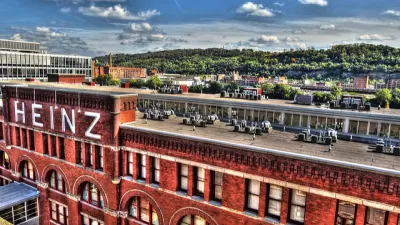Americans living in legacy cities face a unique set of challenges and opportunities in recovering from the COVID-19 pandemic. Several local, state, and federal support strategies could aid these cities in recouping losses.

America's legacy cities, think older industrial cities like Detroit, Cleveland, St. Louis, Pittsburgh, and Buffalo and Rochester, N.Y., are faced with unique and unprecedented challenges during the COVID-19 pandemic, says Lavea Brachman. With historical roots as key players in the industrial and manufacturing economies, legacy cities have experienced decades of high rates of unemployment with many residents facing chronic poverty and material insecurity.
"Putting these places on the road to recovery and prosperity is key to mitigating harmful regional imbalances in the U.S. economy, and their demographic legacies make them linchpins in the country’s efforts to achieve greater racial equity," writes Brachman. "Ensuring prosperity in these cities will not only yield economic benefits for our nation but also advance social progress."
Brachman's article goes on to lay out five reasons "why legacy cities could be hit harder than other places" as well as three unique advantages possessed by legacy cities during crises. According to Brachman, collaboration is a necessity for driving a racially equitable recovery in legacy cities. One key point: intentionally creating economic points of entry to capital investment for minority entrepreneurs and entrepreneurs of color. "Local innovation—along with state and federal policies and supports—and a promising new generation of local leaders can drive such a recovery."
FULL STORY: The perils and promise of America’s legacy cities in the pandemic era

Planetizen Federal Action Tracker
A weekly monitor of how Trump’s orders and actions are impacting planners and planning in America.

Congressman Proposes Bill to Rename DC Metro “Trump Train”
The Make Autorail Great Again Act would withhold federal funding to the system until the Washington Metropolitan Area Transit Authority (WMATA), rebrands as the Washington Metropolitan Authority for Greater Access (WMAGA).

The Simple Legislative Tool Transforming Vacant Downtowns
In California, Michigan and Georgia, an easy win is bringing dollars — and delight — back to city centers.

The States Losing Rural Delivery Rooms at an Alarming Pace
In some states, as few as 9% of rural hospitals still deliver babies. As a result, rising pre-term births, no adequate pre-term care and "harrowing" close calls are a growing reality.

The Small South Asian Republic Going all in on EVs
Thanks to one simple policy change less than five years ago, 65% of new cars in this Himalayan country are now electric.

DC Backpedals on Bike Lane Protection, Swaps Barriers for Paint
Citing aesthetic concerns, the city is removing the concrete barriers and flexposts that once separated Arizona Avenue cyclists from motor vehicles.
Urban Design for Planners 1: Software Tools
This six-course series explores essential urban design concepts using open source software and equips planners with the tools they need to participate fully in the urban design process.
Planning for Universal Design
Learn the tools for implementing Universal Design in planning regulations.
Smith Gee Studio
City of Charlotte
City of Camden Redevelopment Agency
City of Astoria
Transportation Research & Education Center (TREC) at Portland State University
US High Speed Rail Association
City of Camden Redevelopment Agency
Municipality of Princeton (NJ)





























